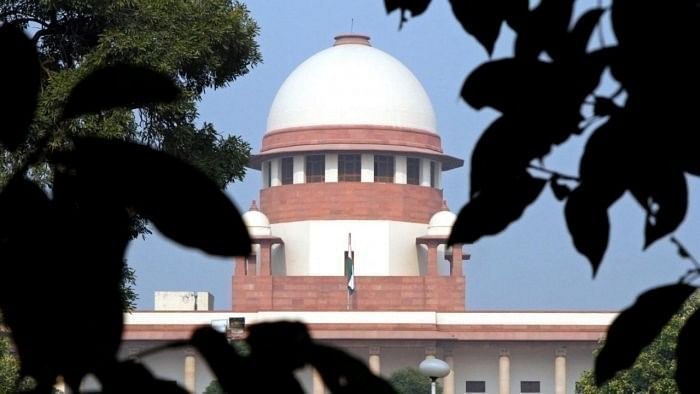
The Supreme Court of India.
Credit: PTI File Photo
New Delhi: The Supreme Court on Friday agreed to hear a plea challenging an order of the Punjab and Haryana High Court which asked the authorities to clear the Chandigarh-Mohali road of protesters.
In May this year, the apex court had stayed the operation of the April 9 order of the high court while hearing a separate petition.
On Friday, a bench of Justices B R Gavai, K V Viswanathan and N Kotiswar Singh sought responses from an NGO, on whose petition the high court had passed the order, and others on the fresh plea.
It tagged the plea with a pending petition raising the same issue.
In its April 9 order, the high court had said despite repeated opportunities given, neither the state of Punjab nor the Union territory of Chandigarh has been able to redress the grievances of the commuters of Chandigarh and SAS Nagar in Mohali.
"Only on account of the fact that some of the protestors have been hiding behind a shield of religious legitimacy by placing the Guru Granth Sahib would not as such give the State reason not to act against the persons concerned, who are misusing the religious sentiments," the high court had said.
It had passed the order on a plea by an NGO which contended that local residents and commuters were facing unnecessary harassment because of the protest on the Chandigarh-Mohali road that has been going on since February 2023.
The protesters have been seeking the release of Sikh prisoners, including Devinderpal Singh Bhullar, a 1993 Delhi bomb blast convict.
The fresh plea, filed in the apex court by 'Kaumi Insaf Morcha', said it has been leading a non-violent and peaceful protest for over a year and half there.
The plea, filed through advocate Satya Mitra, has claimed that the high court had "erroneously ordered the forceful removal of protestors from the site, despite the state government's affidavit to the court indicating that the protestors had not disrupted traffic and that traffic flow around YPS Chowk was normal".
"The longstanding demand for the release of Sikh political prisoners have been a sensitive and emotional issue for the people of Punjab. The movement is giving a representation to those demands through a peaceful sit-in which is neither causing any disturbance of public tranquillity and nor falls under the reasonable restrictions specified in Article 19(2) of the Indian Constitution," it said.
The plea claimed that the high court, in its impugned order, cast aspersions on the motive of the protesters by wrongly claiming they were hiding behind Guru Granth Sahib, using the holy book as a shield.
It said these observations of the high court were unreasonable and excessive.
In its April 9 interim order, the high court had observed that "on account of handful persons sitting and blocking the road, inconvenience is being caused to the commuters and residents of the Tri-city and the misery is continuing".
The high court, while deferring the proceedings, had further said it was hoping that Punjab and Chandigarh administration will "wake up from their slumber" and keep in mind the observations of the apex court given in various verdicts related to protests on roads.